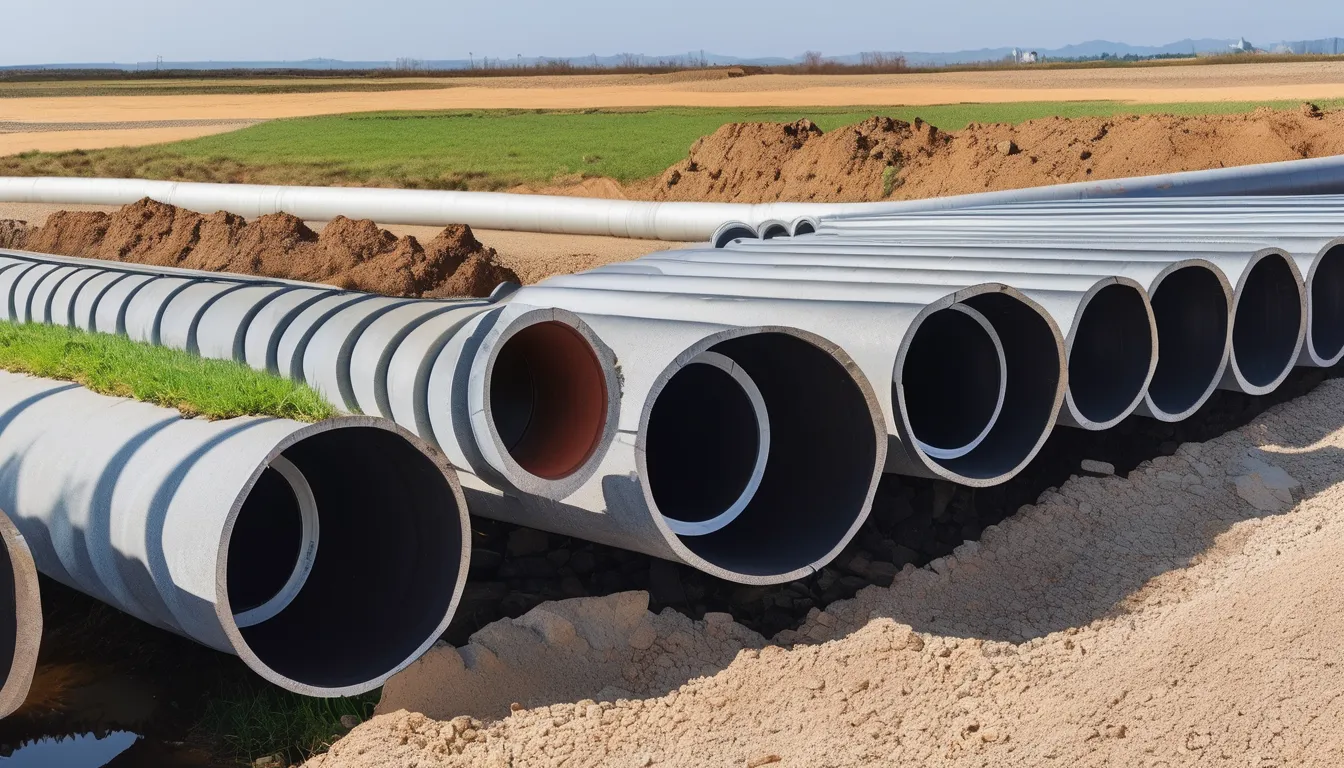
When you’re designing or installing a 排水管 岐阜県 system, it’s crucial you consider the pipe material’s impact on performance. The choice of material can significantly affect the system’s overall efficiency, lifespan, and functionality. You’ll want to weigh factors like strength, hydraulic efficiency, corrosion resistance, and chemical compatibility to ensure the pipes can withstand the demands of the application. But what are the specific implications of selecting the wrong material, and how can you make an informed decision? The answer lies in understanding the unique characteristics of various pipe materials and their effects on system performance.
Pipe Material Selection Factors
When selecting the right material for your drainage pipe, you’re considering several key factors. One of the most important factors is the pipe’s strength and durability.
You’re looking for a material that can withstand the pressure and flow rate of the water, as well as any external loads such as soil or traffic.
Another factor to consider is the pipe’s hydraulic performance, including its ability to convey water efficiently and minimize head losses.
You’re also thinking about the pipe’s compatibility with the surrounding environment and the type of fluid being transported.
For example, if you’re dealing with wastewater or stormwater, you’ll want a material that can resist abrasion and erosion.
Additionally, you’ll want to consider the pipe’s cost-effectiveness, including its initial cost, installation costs, and long-term maintenance requirements.
Corrosion Resistance in Pipes
One crucial aspect of pipe material selection is corrosion resistance. When choosing a pipe material for drainage systems, you’ll want to consider its ability to withstand corrosive substances and environmental factors. Corrosion can lead to pipe failure, contamination, and costly repairs.
To determine the corrosion resistance of different pipe materials, you can refer to the following table:
| Pipe Material | Corrosion Resistance |
|---|---|
| PVC | High resistance to acidic and alkaline substances |
| Ductile Iron | Coatings can provide resistance to corrosion, but may degrade over time |
| Concrete | Susceptible to acid attack and sulfate resistance issues |
| Steel | Prone to corrosion, especially in high-saline or acidic environments |
| Fiberglass | High resistance to corrosion, suitable for harsh chemical environments |
When evaluating pipe materials, consider the specific conditions they’ll be exposed to. For instance, if your drainage system will be handling acidic wastewater, you may want to opt for PVC or fiberglass pipes, which offer high corrosion resistance. By selecting the right pipe material, you can minimize the risk of corrosion and ensure the longevity of your drainage system.
Effects of Pipe Material Abrasion
How does the constant flow of abrasive materials affect your drainage pipes? You’ll notice that the pipe’s inner surface wears down over time, leading to a reduction in its diameter and a subsequent increase in friction.
This, in turn, causes the flow rate to decrease and the pressure to build up. As a result, your drainage system becomes less efficient and more prone to clogging.
The type of pipe material you use plays a significant role in determining its resistance to abrasion. For instance, pipes made from ductile iron, steel, or concrete are more susceptible to wear and tear due to their rough surfaces and rigid structures.
On the other hand, pipes made from smooth, flexible materials like HDPE (high-density polyethylene) or PVC (polyvinyl chloride) are generally more resistant to abrasion. When choosing a pipe material, you should consider the type of abrasive materials that will be flowing through it and select a material that can withstand the wear and tear.
Pipe Material Chemical Compatibility
As you select a drainage pipe material, you must also consider its chemical compatibility with the substances that will flow through it.
This is crucial to prevent corrosion, degradation, or other damage that can lead to pipe failure. Different materials react differently to various chemicals, so it’s essential to assess the chemical properties of the substances that will flow through your drainage system.
For instance, if your drainage system will handle acids, you’ll want to choose a pipe material that’s resistant to acid corrosion, such as PVC or HDPE.
On the other hand, if your system will handle alkaline substances, you may want to opt for a material like concrete or ductile iron.
Additionally, consider the temperature and pressure of the substances, as these factors can also affect the chemical compatibility of the pipe material.
Material Impact on Pipe Lifespan
What’s the expected lifespan of your drainage pipe system, and how will the chosen material affect it? You’ll want to consider the durability and resistance of the material to various environmental factors, such as corrosion, abrasion, and extreme temperatures.
Different materials have distinct lifespans, and selecting the right one can significantly impact the overall performance of your drainage system.
For instance, pipes made from PVC (polyvinyl chloride) typically last around 25-40 years, while those made from ductile iron can last up to 100 years or more. On the other hand, pipes made from HDPE (high-density polyethylene) can last anywhere from 50-100 years, depending on the specific application and environmental conditions.
When choosing a material for your drainage pipe system, it’s essential to consider the expected lifespan and potential maintenance costs.
Conclusion
You’ve seen how pipe material significantly impacts drainage pipe part performance. When choosing a material, you must consider factors like strength, hydraulic efficiency, corrosion resistance, and chemical compatibility. Corrosion, abrasion, and chemical reactions can all reduce a pipe’s lifespan. By selecting the right material for your specific application, you can minimize degradation and ensure your drainage system functions as intended, lasting for years to come and performing optimally.



